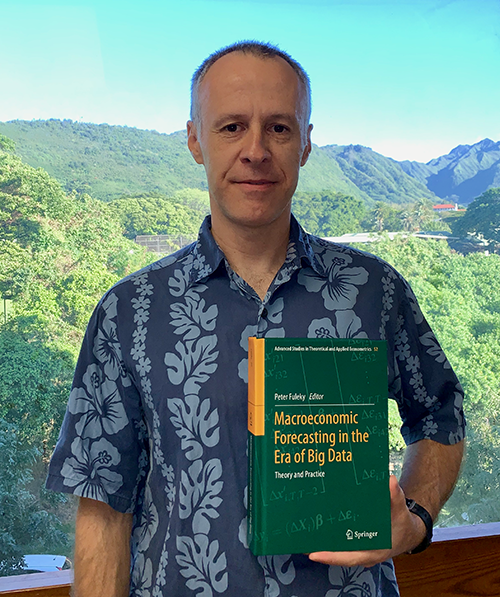By Peter Fuleky

Big data analysis has a long history in macroeconomics. In 1937, National Bureau of Economic Research researchers Wesley Mitchell and Arthur Burns used 487 monthly and quarterly economic time series to advise policy makers on the state of the US business cycle. Since then advances in information technology and its ubiquitous use have lead to tremendous progress in this area.
The last three decades have seen a surge in data collection. Although most data arises at the micro level, the available information is frequently consolidated for use in government statistics and macroeconomic analysis. Statisticians and econometricians have developed numerous techniques to digest the ever-growing amount of data and improve predictions. This volume surveys the adaptation of these methods to macroeconomic forecasting from both the theoretical and the applied perspective. The reader is presented with the current state of the literature and a broad collection of tools for analyzing large macroeconomic datasets.
Each chapter of the book is self-contained with references. The topics are grouped into five main parts. Part I sets the stage by surveying big data types and sources. Part II reviews some of the main approaches for modeling relationships among macroeconomic time series, including dynamic factor models, vector autoregressions, volatility models, and neural networks. Part III showcases dimension reduction techniques yielding parsimonious model specifications. Part IV surveys methods that deal with model and forecast uncertainty. Several techniques described in Parts III and IV originated in the machine learning literature and have been successfully adopted in econometrics. They are frequently combined to avoid overfitting and to improve forecast accuracy. Part V examines important extensions of the topics covered in the previous three sections.
Although most of the topics covered in this volume have shown up elsewhere in the literature, the objective was to present a coherent collection of big data tools used in macroeconomic forecasting, emphasizing methodology as in a handbook. The volume assumes prior training in econometrics and time series analysis. By focusing on forecasting in data-rich environments, the book complements more general texts on the market. The chapters attempt to balance the depth and breadth of the covered material, and are more survey-like than journal articles concentrating on specific questions.


Given the rapid evolution of big data analysis, the topics included in this volume are somewhat selective, focusing on the time series aspects of macroeconomic forecasting—as implied by the title—rather than on spatial, network, structural, and causal modeling. The intended audience includes researchers, professional forecasters, instructors, and students. The volume can be used as a reference and a teaching resource in advanced courses focusing on macroeconomic forecasting.
BLOG POSTS ARE PRELIMINARY MATERIALS CIRCULATED TO STIMULATE DISCUSSION AND CRITICAL COMMENT. THE VIEWS EXPRESSED ARE THOSE OF THE INDIVIDUAL AUTHORS. WHILE BLOG POSTS BENEFIT FROM ACTIVE UHERO DISCUSSION, THEY HAVE NOT UNDERGONE FORMAL ACADEMIC PEER REVIEW.





